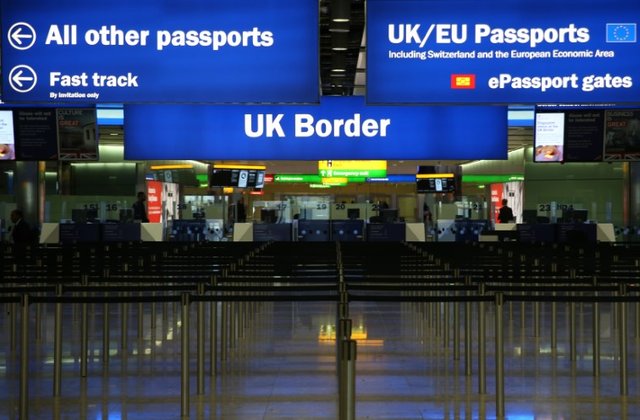
LONDON - People from the EU should face the same immigration rules as those from elsewhere, once the UK has completely left the bloc, the cabinet has agreed.
The agreement in principle follows a recommendation of the independent Migration Advisory Committee (MAC), which was also backed by the Labour opposition party.
The cabinet unanimously supported a system based on skills rather than nationality, a source told the BBC.
But some fear that a bar on low-skilled EU migrants may damage business.
The prime minister has repeatedly vowed to end unlimited immigration from Europe after Brexit.
BBC political editor Laura Kuenssberg said: "Ending freedom of movement as it stands has become a rhetorical non-negotiable for Theresa May."
Labour's shadow Brexit secretary Sir Keir Starmer said a "fair" system was needed to prevent discrimination.
But speaking on BBC One's Breakfast, he also urged caution, saying there might need to be a "discussion around the rules of EU nationals... if we want a close economic relationship with the European Union".
The cabinet agreement came after a presentation from the MAC chairman, Prof Alan Manning, at a lengthy meeting on Monday.
According to one source, the principle was agreed that the UK would not show bias towards immigrants from any one part of the world over another when granting access to work.
However, one cabinet source told the BBC the agreement did not constitute a firm decision and a government source said there could be "light touch migration" rules for EU nationals as part of any wider Brexit trade deal.
The government does not call this "preferential" treatment because a similar arrangement could be struck with, for example, the US as part of a UK-US trade deal.
The EU's principle of freedom of movement currently allows people from the European Economic Area - all EU countries, as well as Norway, Iceland and Liechtenstein - plus Switzerland, to travel and work within the area without visas, regardless of skills.
Anyone wanting to move to the UK from outside the EU, as well as Norway, Iceland, Liechtenstein and Switzerland, to work or study needs to apply for one of a number of visas.
These range from Tier 1, preserved for investors and "exceptional talent", to Tier 5 visas for short-term voluntary and educational programmes.
The two most common are the Tier 2 skilled worker visas and Tier 4 student visas. Currently, no Tier 3 - unskilled labour - visas are being given out.
Some of these visas allow people to apply to bring dependants such as children and partners.
Visas work on a points-based system and the criteria have got tougher in recent years.
For example, for a Tier 2 "experienced skilled worker" visa, people now need to be paid at least £30,000 to apply, up almost £10,000 from 2011. People get more points for higher salaries or if their job is on the list of shortage occupations.
Most visas come with other conditions, including knowledge of English, the need for a sponsor and agreeing not to claim benefits for a period of time.(FA)


